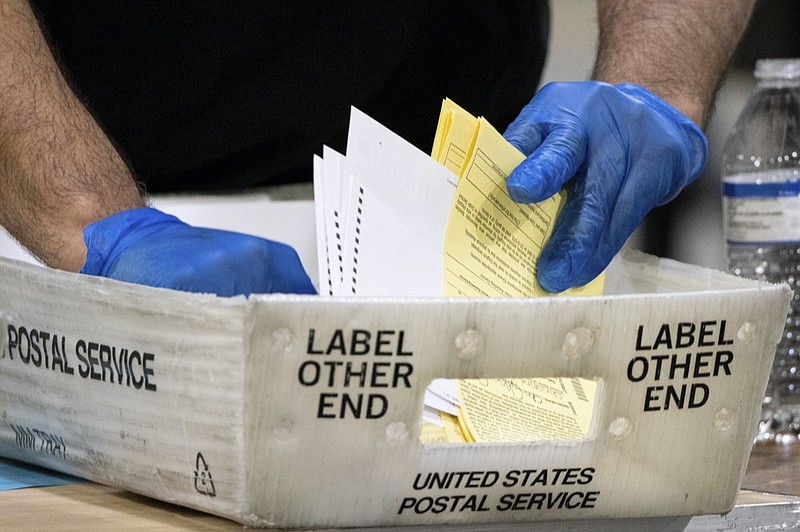ATLANTA - Georgia's secretary of state is moving forward with a study of the effectiveness of the signature verification process the state used for absentee ballots until it was replaced by new identification requirements this year.
In the weeks after the November election, then-President Donald Trump and his allies claimed the election was stolen from him. He fixated on several states, including Georgia, where he lost by fewer than 12,000 votes. Among other things, he demanded an audit of signature matches used to confirm the identity of a voter casting an absentee ballot.
Secretary of State Brad Raffensperger in December announced an audit of the signatures on absentee ballots in Cobb County, just outside Atlanta. He also said at the time that his office was working with a university on a statewide signature match study. Investigators found "no fraudulent absentee ballots" during the Cobb County audit.
Trey Hood, a University of Georgia political science professor, has been hired by the secretary of state's office to do the study, the Atlanta Journal-Constitution reported. A random sample of 5,000 absentee ballot envelopes from across the state for last year's general election will be examined by students trained to verify them using the same methods that were used by election officials, Hood told the newspaper.
"It's not an audit. I don't want anyone to get that idea in mind," Hood said. "We're not relitigating the 2020 election."
Under the process in place until this year, Georgians who submitted an absentee ballot had to sign an oath on an outer envelope. When county election officials received an absentee ballot, they had to compare the signature to the signature on file.
If the signature wasn't consistent, the voter would be notified and could take other steps to verify identity. If the signature did match, the ballot was separated from the envelope to protect the right to ballot secrecy guaranteed by Georgia law.
But a sweeping new election law passed this year did away with the signature matching process, instead implementing a photo identification requirement for absentee ballots.
The study will examine the signature verification process used in November's election. Hood said he hopes to finish the study this semester, but it has been slowed by a need to seek court orders to access some of the absentee ballot envelopes.
Under Georgia law, election materials are kept under seal by court clerks "unless otherwise ordered by the superior court. Some counties released absentee ballot envelopes for the study under a part of the new election law that allows the secretary of state to inspect them within 24 months of an election, The Journal-Constitution reported.
But Raffensperger's office confirmed this week that it is seeking court orders to gain access to absentee ballot envelopes in at least 17 counties.
